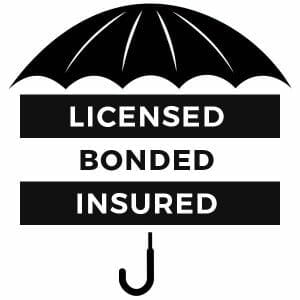When deciding on the best roofing system for your commercial property, two of the most common options are Built-Up Roofing (BUR) and Modified Bitumen. Both of these systems are highly reliable and have been trusted by businesses for decades, but each has unique qualities that make it suited for different needs. Making the right choice requires understanding the differences between these two options.
At Integrity Pro Roofing, we work with built-up and modified bitumen roofing. With our expertise, we can help you sort the details out and find the best system for your building. In this blog, we’ll walk you through the key features, benefits, and potential drawbacks of each so you can confidently pick out the system that works for you.
Commercial Roofing Comparison
What is Built-Up Roofing (BUR)?
Built-Up Roofing (BUR), often referred to as tar and gravel roofing, has stood the test of time as a classic roofing system. For over 100 years, BUR has been the go-to option for many commercial buildings due to its durability and proven reliability. It’s made up of several layers—each one adding strength and protection.
Components of Built-Up Roofing
A typical BUR system consists of four main layers:
- Base Sheet: The foundational layer, usually made from asphalt-coated organic sheets or fiberglass.
- Reinforcing Ply/Felts: Felt layers, typically saturated with asphalt or tar, provide extra strength.
- Bitumen Layer: Asphalt or coal tar bonds the layers together, creating a watertight barrier.
- Surfacing Layer: Gravel, asphalt, or mineral aggregates protect the roof from UV damage and wear.
These layers give BUR its durability, making it a popular choice for commercial properties that need long-lasting protection.
Benefits of Built-Up Roofing
One of the main reasons people choose built-up roofing is its exceptional durability. The multiple layers provide strength and resilience that are difficult to beat. Whether in extreme weather, strong winds, or UV rays, BUR protects against the elements. Additionally, its seamless and waterproof design reduces the chances of leaks. Since the surface is continuous, there are fewer weak points than other roofing systems.
BUR roofs also stand out for their fire resistance. The top layer of gravel or mineral materials helps protect against fire, which can significantly benefit many commercial properties.
Another benefit is that BUR roofs require minimal maintenance over time, allowing business owners to continue their operations without worrying about constant repairs.
Drawbacks of Built-Up Roofing
Despite its advantages, BUR has some drawbacks. One of the main issues is that installation can drag on. The labor-intensive layering process can take days to complete, especially for large roofs. Additionally, the weight of BUR is a concern. Not all buildings are equipped to support the extra load, and additional structural support may raise costs.
Another issue is the smell during installation. Hot asphalt or tar emits a strong odor that might affect building occupants, particularly if operations continue during roofing.
What is Modified Bitumen Roofing?
Modified Bitumen Roofing is a more modern solution that appeared in the 1960s. It combines the traditional durability of asphalt roofing with enhanced flexibility, thanks to modifiers like SBS (Styrene-Butadiene-Styrene) or APP (Atactic Polypropylene).
This roofing system offers many of the same benefits as BUR but some additional perks, making it a popular choice for commercial property owners seeking a cost-effective solution.
Components of Modified Bitumen Roofing
The modified bitumen roofing system includes the following components:
- Base Sheet: Provides the foundation for the roof.
- Modified Bitumen Membrane: Asphalt combined with modifiers (SBS or APP) to create a flexible, durable membrane.
- Reinforcement Layer: Polyester or fiberglass adds strength to the system.
- Cap Sheet: A protective top layer, often coated with reflective granules for UV protection.
- Adhesive: The layers are bonded together using hot asphalt, a torch-down method, or cold adhesive.
Benefits of Modified Bitumen Roofing
One of the top reasons many business owners select modified bitumen roofing is its cost-effectiveness. The straightforward installation process and the availability of materials make it a more affordable option. Plus, it’s a great choice for properties with large surface areas, offering excellent value for money.
Another key advantage of modified bitumen is its flexibility. Unlike BUR, which can be rigid, modified bitumen can handle temperature changes without cracking. This makes it an excellent option for regions with fluctuating weather. Modified bitumen is lightweight, so that it won’t stress your building’s structure much.
When it comes to repairs, modified bitumen is easier to patch up than BUR. If your roof sustains damage, replacing small sections without disrupting the entire system is relatively simple.
Drawbacks of Modified Bitumen Roofing
Although modified bitumen roofing has many benefits, it also has its challenges. One of the main drawbacks is that it has seams where the sheets are joined. Over time, these seams can wear out and become susceptible to leaks.
Additionally, modified bitumen doesn’t typically last as long as BUR. While a BUR system can last up to 40 years with proper maintenance, modified bitumen usually has a lifespan of about 20 to 30 years.
Built-Up Roofing vs. Modified Bitumen: Which is Right for You?
Now that you’re familiar with the key features of built-up roofing and modified bitumen, how do you decide which is best for your commercial property? It depends on your building’s specific needs and your priorities in terms of durability, cost, and maintenance.
Choose Built-Up Roofing If:
- You need a highly durable system that can withstand extreme weather conditions and last for decades.
- Your building can handle the extra weight that comes with a BUR system.
- You prefer a roofing system that requires minimal maintenance and offers fire resistance.
Choose Modified Bitumen Roofing If:
- You’re looking for a cost-effective solution that’s quicker to install.
- Your roof needs to deal with temperature changes, and you want a system that’s flexible and won’t crack.
- You need a lighter-weight roofing system that won’t stress the structure of your building.
Trusted Roofing Solutions for Your Commercial Property
At Integrity Pro Roofing, we install both built-up roofing systems and modified bitumen roofing with the highest level of professionalism. Both options offer unique advantages, and our team is here to help you find the right one for your business.
Whether you’re looking for a system that will last decades or an affordable option with easier repairs, we have the expertise to support our recommendations. Contact us today for a free estimate, and let us help you secure a reliable, durable roof that will protect your property for years to come.
When it comes to roofing, you deserve less stress and better results. And that’s exactly what we deliver.







